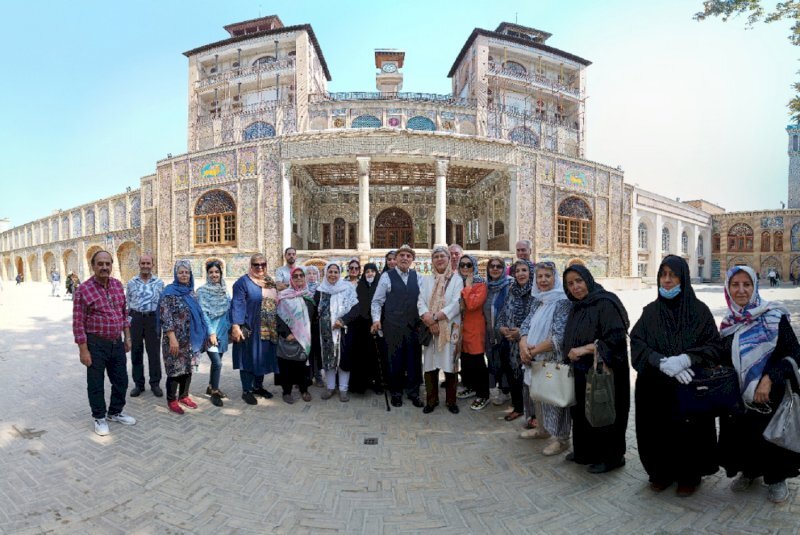Royal palace tour arranged for elderly people

TEHRAN – A guided tour has taken some 50 elderly people to the UNESCO-registered Golestan Palace in downtown Tehran on the occasion of the national tourism week (September 27-October 4), Tehran’s deputy tourism chief has said.
The tour, which took place on Tuesday, was designed to create social vitality for the elderly, Ali Rafiei explained, CHTN reported on Wednesday.
Tour programs for the elderly are not limited to tourism week and will continue through the end of the year, the official added.
UNESCO says that Golestan Palace exemplifies architectural and artistic achievements of the Qajar era including the introduction of European motifs and styles into Persian arts.
The royal complex was once the official residence of the Qajar monarchs who ruled the country between 1789 and 1925. It displays a remarkable mixture of ancient Persian and contemporary European architectural styles, which characterized much of Iranian art in the 19th and 20th centuries.
Visitors can simply spend half a day admiring several key structures that make up the palace, including lots of spectacular halls, chambers, museums, and gardens. All of them were built during the rule of the Qajar kings.
The stunning Karim Khani nook, which was the former residence of the founder of the Zand dynasty (1751 to 1779), and the brilliant Mirror Hall, which was used for royal weddings and coronations, are amongst the must-see premises of the complex.
Also, the highlights include Shams-ol Emareh (“the Edifice of the Sun”), a palace that offered a panoramic view of the city for the monarchs, and Brilliant Hall, which is known for its incredible display of mirror work.
Visitors may likely take two or three hours to thoroughly explore the palace complex. One can relax by the gorgeous pond in the main garden after all the walking around. Next to the palace lies the bustling Grand Bazaar of Tehran, which is a top place to get a glimpse of local life. Some visitors to the bazaar refer to it as “a city within a city” because it also includes several mosques, guesthouses, banks, and once-thriving caravansaries. While most of its covered structures and marketplaces are associated with the 19th century onwards, the history of trade in the bazaar is rooted much deeper in time.
ABU/MG
Leave a Comment